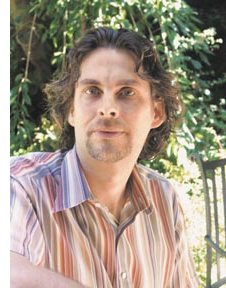
Michael Chabon on how his MFA writing program changed him:
"But the most important thing that happened to me as a graduate student in creative writing had little directly to do with writing or publishing or agents or subject matter or style. When I started the program in 1985 I was a little shit; by the time I left Irvine I was not just a published novelist, I was something that had begun, inwardly, to resemble a man."
To be specific:
“All I ask of life,’” as the narrator of Tropic of Cancer approvingly quotes his friend the novelist Van Norden, “‘is a bunch of books, a bunch of dreams, and a bunch of cunt.’” For a few crucial years that was my own secret little-shit motto—or so, at least, I told myself. I curated a personal pantheon of shitheels, of musicians, actors, painters, writers and directors, from Charles Mingus to Picasso to Marlon Brando to Jean-Luc Godard, whose work or whose biography seemed to be replete with examples of the kind of giddily anti-social, why-the-fuck-not?, mock-Napoleonic self-involvement and hound-doggishness I thought I admired."
And why:
"Misogyny comes naturally to a young man in his late teens; it is a function of the powerful homosocial impulses that flower along fraternity row, that drove the mod movements of the mid-sixties and the late seventies, that lie at the heart of every all-male rock band formed by men of that age."
How he changed:
"But when I showed up at Irvine to start my first year as the youngest member of the MFA fiction workshop, I was not ready for what I found there: a room full of grown ups, more than half of them women. Some of these women were married, one of them had a grown child of her own. Without taking themselves half as seriously as I did, they were all twice as serious about what they were doing. They were better read, more disciplined, more widely traveled, and far less impressed with me than I was."
What they did:
"The people in the workshop, but especially the women, and especially the women who were in the full middle of their lives, knew—they could testify to—just how rare and marvelous such a gift truly was. They had left real jobs, made real sacrifices, to come to Irvine. They had mortgages and health problems, troubled marriages, debts and obligations. And so I was obliged, or at least I felt that I was, to rise to the standard they set: in their writing, for the treatment of human emotion and relationships; in their lives for seizing this chance to learn and share and get immersed in the work; and in the workshop itself, women and men, for undertaking that collective work with respect, with charity, with tolerance, and above all—most frightening to me at the time—with no patience for the pretense and callowness and trite anti-social pose of some little shit. I think that’s the only cure, in the end, for the little shit: regular exposure to the healing rays of healthy disillusion, and in particular the hard-earned skepticism of grown women. Call it the Yoko Ono effect."
(Via Bookslut)
No comments:
Post a Comment